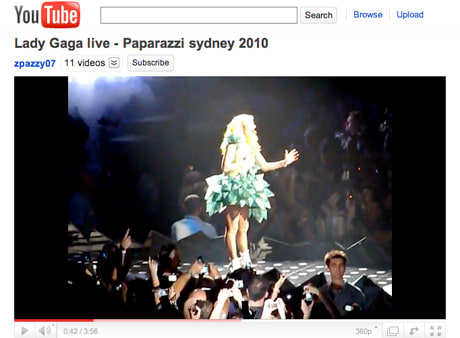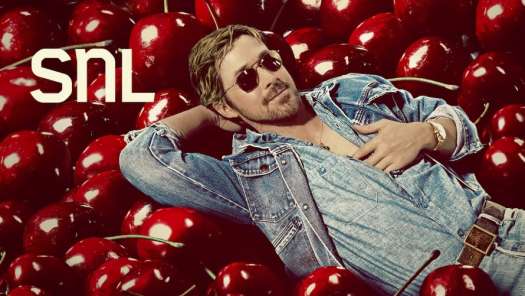I officially declare the camera phone a scourge. At every show, there's a forest of video-enabled dorks up front, not watching nor listening, just furiously taping in the hope of catching a flub or fly down for YouTube. The addiction to capturing video of every moment of a show is, to my mind, a narcissistic impulse that degrades the magical ephemera of the live experience. I'm agin' it.
On the other hand, low-cost, high-quality digital video can be a real boon to artists who are smart enough to capture and make available the good stuff. Intimate and off-the-cuff video clips can help build your fan base and pull your existing fans closer.
Often presented under the questionable flourish of "exclusivity," lo-fi video clips are a mainstay of the music blog. Bloggers come by their content through a variety of means ― some self-shot and some through official artist channels (publicists, labels, artists themselves). Quite a lot of the video content flying around the multiverse at any given time was shot and uploaded by one of those random dork-arms in the video forest at the front of the stage. Some artists are cool with this, and some aren't. But what shooters and bloggers should know is that a lot of the footage ain't legal.
A pile of rights flowing from the Copyright Act and civil law are triggered whenever someone shoots video of an artist in performance. The artist is the first and exclusive owner of all the rights in question, so if you haven't secured permission to shoot or use the video, you're already colouring outside the law. Here's a breakdown of the major rights in play:
- The right to record the performance. Only the performer has the right to authorize a performance to be permanently recorded. If you don't get permission, you don't own the recording ― the artist does, and can require you to hand it over or destroy it. Note that if you don't have the right to record, you also don't have the "mechanical right" to make copies.
- The right to publicly perform the recording. Only the legal copyright owner can authorize a recorded performance to be broadcast or publicly performed, which includes being played on the interwebs. This is the law that labels and other copyright owners rely on when they stomp your video with a takedown notice on YouTube.
- The right to synchronize the song with moving images. Synch rights belong to the songwriter/ publisher and come into play when you make a video with a soundtrack, whether live or synched up.
- Personality rights. These aren't part of copyright law, but under civil law performers have the exclusive right to control their public performances, their image and likeness, and any still photos or videos of them in performance.
Put together, these are the reasons why you couldn't, say, sneak ten camera crews into a stadium for a Lady Gaga show, and then release the footage worldwide as an exclusive concert film. Everyone gets that example because there are buckets of money to be made selling an exclusive Lady Gaga concert movie. But bootlegging any artist's concert is technically illegal whether you intend to use it to make money or not. The difference is mostly in the penalties if the artist decides to object. If your ill-gotten footage is running on a non-commercial fan site and the artist asks you nicely to take it down, just take it down. But if you are running the footage on a blog that sells banner ads or has any other money-making features, then you, my friend, are using illegally-obtained footage for commercial gain.
There is an easy way around the heartbreak of being sued for piracy, though: get permission! Bloggers, make it a rule to always get the green light, preferably in writing, from the artists that you videotape before you upload their music and performances to the universe. And fans, instead of barfing up another 19 seconds of blurry, shaky, fried-audio garbage, why not chill out and enjoy what you came for.
On the other hand, low-cost, high-quality digital video can be a real boon to artists who are smart enough to capture and make available the good stuff. Intimate and off-the-cuff video clips can help build your fan base and pull your existing fans closer.
Often presented under the questionable flourish of "exclusivity," lo-fi video clips are a mainstay of the music blog. Bloggers come by their content through a variety of means ― some self-shot and some through official artist channels (publicists, labels, artists themselves). Quite a lot of the video content flying around the multiverse at any given time was shot and uploaded by one of those random dork-arms in the video forest at the front of the stage. Some artists are cool with this, and some aren't. But what shooters and bloggers should know is that a lot of the footage ain't legal.
A pile of rights flowing from the Copyright Act and civil law are triggered whenever someone shoots video of an artist in performance. The artist is the first and exclusive owner of all the rights in question, so if you haven't secured permission to shoot or use the video, you're already colouring outside the law. Here's a breakdown of the major rights in play:
- The right to record the performance. Only the performer has the right to authorize a performance to be permanently recorded. If you don't get permission, you don't own the recording ― the artist does, and can require you to hand it over or destroy it. Note that if you don't have the right to record, you also don't have the "mechanical right" to make copies.
- The right to publicly perform the recording. Only the legal copyright owner can authorize a recorded performance to be broadcast or publicly performed, which includes being played on the interwebs. This is the law that labels and other copyright owners rely on when they stomp your video with a takedown notice on YouTube.
- The right to synchronize the song with moving images. Synch rights belong to the songwriter/ publisher and come into play when you make a video with a soundtrack, whether live or synched up.
- Personality rights. These aren't part of copyright law, but under civil law performers have the exclusive right to control their public performances, their image and likeness, and any still photos or videos of them in performance.
Put together, these are the reasons why you couldn't, say, sneak ten camera crews into a stadium for a Lady Gaga show, and then release the footage worldwide as an exclusive concert film. Everyone gets that example because there are buckets of money to be made selling an exclusive Lady Gaga concert movie. But bootlegging any artist's concert is technically illegal whether you intend to use it to make money or not. The difference is mostly in the penalties if the artist decides to object. If your ill-gotten footage is running on a non-commercial fan site and the artist asks you nicely to take it down, just take it down. But if you are running the footage on a blog that sells banner ads or has any other money-making features, then you, my friend, are using illegally-obtained footage for commercial gain.
There is an easy way around the heartbreak of being sued for piracy, though: get permission! Bloggers, make it a rule to always get the green light, preferably in writing, from the artists that you videotape before you upload their music and performances to the universe. And fans, instead of barfing up another 19 seconds of blurry, shaky, fried-audio garbage, why not chill out and enjoy what you came for.




